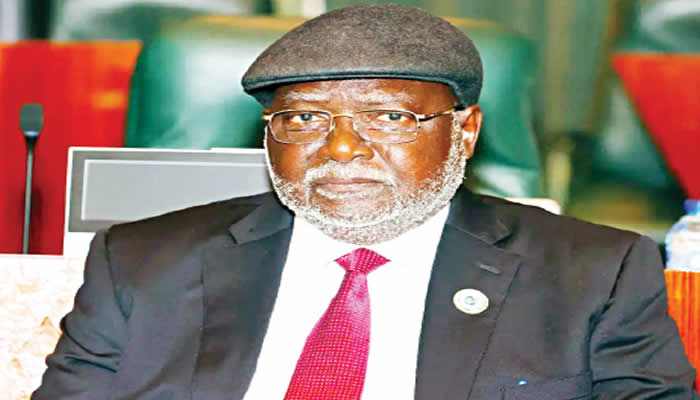
Nigerians are the most litigious people on earth putting pressure on the judiciary, the Chief Justice of Nigeria, Justice Olukayode Ariwoola, said on Monday.
He advised that the public should do less litigation and embrace alternative dispute resolution to free courts from unnecessary pressure.
To buttress his claim, Justice Ariwoola explained that during the 2021/2022 legal year alone, the Supreme Court took a total of 1,764 cases, comprising motions and appeals.
Out of the figure, he said the justices of the court heard 816 civil, 370 criminal and 16 political matters, making a total of 1,202 motions.
Justice Ariwoola, who spoke against the incessant rush to court after every disagreement, explained that Nigeria had various alternative dispute resolution mechanisms across the country that could be leveraged on.
The CJN stated these at the Supreme Court during a special session to mark the 2022/2023 legal year of the apex court and the inauguration of the 62 new Senior Advocates of Nigeria.
He said, “In every little disagreement, we rush to court; and in every lost case, we rush to appeal even up to the Supreme Court, no matter how little the issue might be. That has obviously accounted for the several appeals pending in Supreme Court.
“Though we receive scathing criticisms from members of the public over our over-blotted docket; we are neither in any position to regulate case inflow to the court nor have the supernatural powers to attend to all in one fell swoop.”
The CJN said the apex court considered a total number of 562 appeals, comprising 341 civil, 186 criminal and 35 political cases.
A total number of 154 judgments were delivered in the year.
Justice Ariwoola said, “Our pending (backlog) civil appeals are 4,741, while the number of pending (backlog) criminal appeals is 1,392. On the other hand, we have 751 moribund appeals for disposal. That brings the total number of pending (backlog) appeals in this honourable court to 6,884.
“Out of the 4,741 appeals in the court’s docket, 1,495 have briefs filed and exchanged and are ready for hearing; whereas, the remaining 3,246 appeals are having about 10,000 motions, with some contentious and others innocuous in nature.
“As for the pending 1,392 criminal appeals, 461 already had briefs filed and exchanged and are ready for hearing. The remaining 931 appeals have about 2,000 different motions for hearing to determine their eligibility for hearing.
“However, the identified 751 moribund appeals are to be disposed of for non-compliance with the Supreme Court Rules, i.e. Order 8 Rule 8.
“Available facts on judicial activities in various jurisdictions across the globe still emphatically confirmed that the Supreme Court of Nigeria remains the busiest and most hard-working Supreme Court in the world.
“It is on record that we work from Monday to Friday every week. We conduct sittings daily. It is only on Wednesdays we do Chamber sitting to consider non-contentious matters. On Fridays, we deliver judgments and rulings.”
He noted that the Nigerian judiciary was “to a very large extent” independent of external influence.
Ariwoola, however, said the judiciary was not independent financially as he appealed to the executive and the legislature to look into the budget of the third arm of government.





